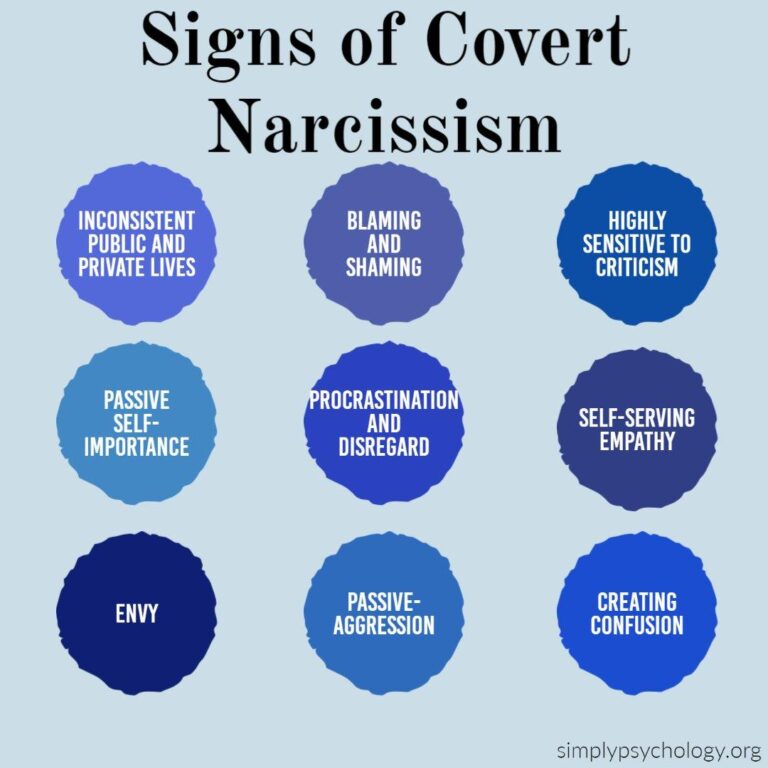Have you ever met someone who seems humble and self-effacing, only to later realize they were quietly steering the spotlight their way all along? Welcome to the puzzling world of covert narcissists. Unlike the classic image of the loud, boastful narcissist, these individuals wear humility like a clever disguise, making it tricky to spot their true intentions. In this article, we’ll peel back the layers of this subtle facade and explore how covert narcissists use modesty to mask their need for admiration—so you can recognize the signs and protect your emotional well-being. Let’s dive in!
Table of Contents
- Understanding the Quiet Ego Trap How Covert Narcissists Hide Behind Humility
- Spotting the Subtle Signs Recognizing Covert Narcissism in Everyday Interactions
- The Emotional Impact Why Covert Narcissism Can Be More Harmful Than You Think
- Practical Steps to Protect Yourself Setting Boundaries and Cultivating Self-Awareness
- Closing Remarks
Understanding the Quiet Ego Trap How Covert Narcissists Hide Behind Humility
At first glance, their humble demeanor almost seems genuine, but underneath lies a sophisticated mask that serves to manipulate others’ perceptions. Unlike the stereotypical loud and proud narcissist, these individuals leverage subtlety to maintain control. They often present themselves as modest, self-effacing, and even self-critical—but these traits are carefully curated to avoid conflict and deflect attention from their true motives. This quiet pose effectively blinds those around them, making their need for admiration and validation nearly invisible.
Becoming aware of this dynamic requires looking beyond surface humility and recognizing key red flags, such as:
- Passive-aggressive behavior that undermines others while keeping a facade of innocence.
- Excessive self-deprecation used to fish for compliments or sympathy.
- Subtle manipulation disguised as helpfulness or concern.
- Lack of genuine empathy masked by scripted kindness.
By understanding this complex duality, you can unearth the silent power plays and protect yourself from emotional exploitation disguised as humility.
Spotting the Subtle Signs Recognizing Covert Narcissism in Everyday Interactions
When interacting with someone who might be a covert narcissist, the signals can be surprisingly nuanced. Unlike their overt counterparts, these individuals often mask their self-centeredness behind a veil of humility or shyness. You might notice subtle behaviors like downplaying their achievements while fishing for compliments or always presenting themselves as the “underdog” who quietly deserves recognition. They might also whisper criticisms disguised as self-deprecation, such as “I’m probably not good enough, but…” followed by an expectation that you’ll reassure them otherwise.
Pay attention to the way they engage in conversations — covert narcissists often employ passive-aggressive tactics, such as:
- Suddenly withdrawing attention after receiving praise, making you feel you must earn it again.
- Expressing indirect envy or resentment toward others with a facade of concern.
- Using gentle guilt-tripping, such as suggesting they’ve sacrificed a lot while downplaying their own needs.
These subtle hints can easily be overlooked, but recognizing them helps you unmask the humility disguise and better navigate your interactions with emotional clarity.
The Emotional Impact Why Covert Narcissism Can Be More Harmful Than You Think
Unlike overt narcissists, who wear their grandiosity like a badge, covert narcissists operate in the shadows, making their emotional manipulation less obvious but equally insidious. Their subtle tactics often leave victims feeling confused, drained, and questioning their own worth. This hidden form of narcissism strikes at the core of a person’s emotional well-being because it twists vulnerability into a weapon. You might find yourself feeling isolated, invalidated, or even guilty for needing support, while the covert narcissist cloaks their control behind a mask of humility and quiet suffering.
Being entangled with a covert narcissist can erode self-esteem in ways that leave deep scars, often because the emotional abuse is so insidious that it goes unnoticed by friends and family. Signs of this emotional toll include:
- Chronic self-doubt and confusion about personal feelings
- Excessive people-pleasing and fear of voicing opinions
- Emotional exhaustion from walking on eggshells
- A growing sense of invisibility despite constant alertness
Understanding the quiet devastation covert narcissism can cause is the first step in reclaiming your emotional health and nurturing genuine relationships grounded in respect and transparency.
Practical Steps to Protect Yourself Setting Boundaries and Cultivating Self-Awareness
Establishing clear, firm boundaries is essential when dealing with covert narcissists, who often mask their manipulation under a veil of humility. Start by identifying your non-negotiables—those personal values and needs that you will not compromise on. Communicate these limits calmly and assertively, without feeling the need to justify or apologize. Remember, setting boundaries isn’t about creating walls; it’s about defining your space to protect your emotional well-being. Consistently enforcing these boundaries sends a message that you respect yourself, which covert narcissists find difficult to undermine.
Equally important is cultivating self-awareness to recognize when your energy is being drained or manipulated. Pay close attention to your emotions and physical responses during interactions—feelings of confusion, guilt, or exhaustion can be red flags. Journaling your experiences or practicing mindfulness can help you tune into these signals. Surround yourself with supportive people who validate your feelings and encourage your growth. These steps empower you to reclaim your narrative, shift the power dynamic, and nurture a healthier relationship with yourself and others.
Closing Remarks
Thanks for sticking with me through this deep dive into the world of covert narcissists and their clever humility disguise. It’s tricky terrain, but understanding these hidden behaviors is the first step toward protecting yourself and fostering healthier relationships. Remember, awareness is power—and with it, you can start to see through the mask and nurture connections that truly honor your worth. If this resonated with you, feel free to share your thoughts or experiences below. Until next time, take care and keep shining your authentic light!

